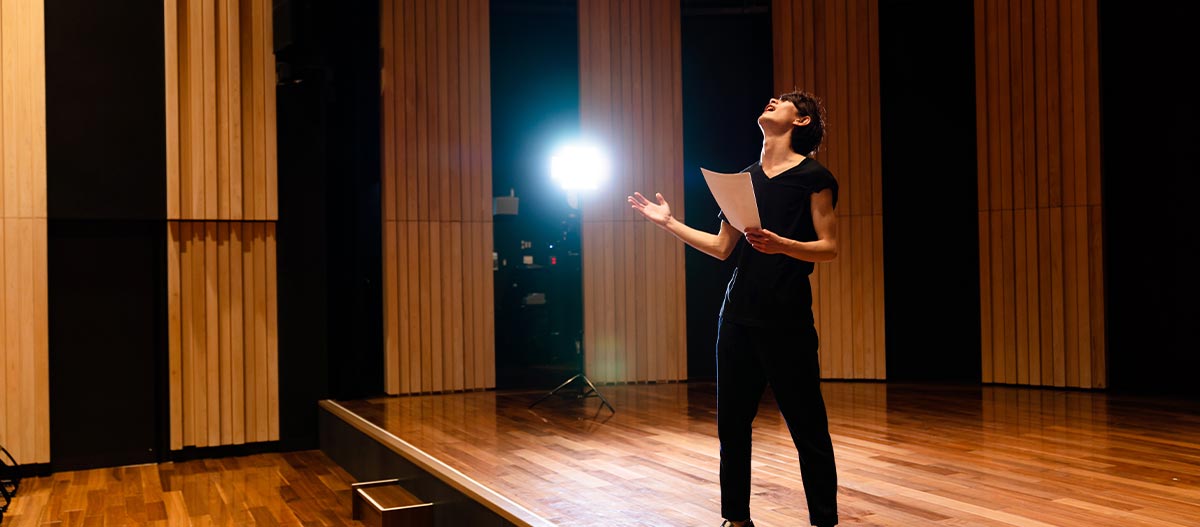Musical theatre is an exciting art form that combines singing, acting, and movement to tell a story.
Unlike pop or classical singing, musical theatre requires clear expression, strong vocal technique, and emotions that are visible in every performance.
If you are just starting, here are some essential tips to help you build confidence and skill as a musical theatre singer.
1. Warm Up Your Voice
Before you start singing, it is important to warm up to prepare your vocal cords, improve your range, and prevent vocal fatigue.
Include the following in your warm-up routine:
- Lip trills and humming to gently wake up your voice.
- Sirens (sliding pitch up and down) to expand your range.
- Vowel exercises using “ah” or “ee” to improve vocal tone.
Dedicate at least ten minutes to vocal exercises before singing to make performing easier.
2. Use Proper Breath Support
Proper breath control is essential for maintaining long phrases and delivering high notes effectively.
To improve this:
- Breathe deeply from the diaphragm, not the chest. Your stomach should expand as you inhale.
- Practise controlled exhalation by slowly releasing air with a “sss” sound.
- Engage your abdominal muscles for support while singing.
Good breathing technique will help you sing with stability and confidence.
3. Focus on Storytelling
In musical theatre, emotion and storytelling are just as important as hitting the right notes.
Before singing a song, ask yourself:
- Who is my character?
- What are they feeling at this moment?
- Why are they singing this song?
Understanding the meaning of the song will help you deliver an authentic and powerful performance.
4. Improve Your Diction
In musical theatre, it is important that every word is clear so the audience can understand the lyrics.
To improve diction:
- Pronounce each syllable clearly during warm-ups.
- Practise tongue twisters (e.g. “She sells sea shells by the sea shore”).
- Slow down tricky lyrics and focus on articulation.
Clear diction will help you express your story more effectively.
5. Discover Your Natural Voice
While it may be tempting to imitate famous Broadway singers, it is best to embrace your unique sound.
To find your natural voice:
- Choose songs that fit your vocal range.
- Avoid forcing high or low notes—allow your voice to develop naturally.
- Record yourself singing and listen back to identify areas for improvement.
Your true voice is what makes your talent stand out!
6. Study Vocal Dynamics
Musical theatre songs are full of emotional highs and lows. Learning to control dynamics (the loudness and softness of sound) enhances your performance. Try:
- Singing softly during delicate or emotional moments.
- Projecting your voice in powerful, dramatic scenes.
- Experimenting with different volume levels to keep the song engaging.
The correct use of dynamics brings a song to life.
7. Choose the Right Song for Your Voice
As a beginner, it is important to select songs that suit your voice. Look for songs that:
- Match your vocal range.
- Showcase your vocal strengths.
- Allow you to act and express emotion.
8. Act While Singing
In musical theatre, having a great voice is not enough—you also need to express emotion through your face and body.
To improve:
- Practise in front of a mirror to observe your facial expressions.
- Use gestures and movement to enhance the emotion of the song.
- Feel the lyrics to create a more genuine performance.
Great storytelling makes your singing more compelling!
9. Take Care of Your Voice
Your voice is your instrument, so it is essential to take care of it. Make sure to:
- Drink plenty of water to stay hydrated.
- Avoid caffeine, dairy, and overly sweet foods before singing.
- Get enough rest to prevent vocal strain.
Proper vocal care will help you maintain the quality of your voice.
10. Keep Practising and Enjoy the Process
The best way to improve is through regular practise and performance.
Join a choir, take voice lessons, or audition for a local theatre production. Most importantly—enjoy the journey!
Conclusion
Musical theatre singing is a unique art form that requires a combination of technical skill, emotional expression, and strong stage presence.
For beginners, it is essential to focus on solid vocal technique, effective storytelling, and selecting the right songs.
Training in mix voice, movement while singing, and musical interpretation will help develop versatility and preparedness for any role in musical theatre.
Beyond mastering the correct techniques, stage confidence comes from experience and self-assurance.
Consistent performances, listening to feedback, and learning from experts will support your growth as a performer.
Remember, it is not just about hitting the right notes—it is about storytelling, connecting with the audience, and bringing a character to life.
With dedication, hard work, and a passion for the craft, every beginner has the potential to shine on stage and showcase their talent in musical theatre.













